Global Plastics Treaty
Plastic is harmful to human health, perpetuates social injustice, destroys our biodiversity and fuels the climate crisis. We demand that governments commit to a strong Global Plastics Treaty.
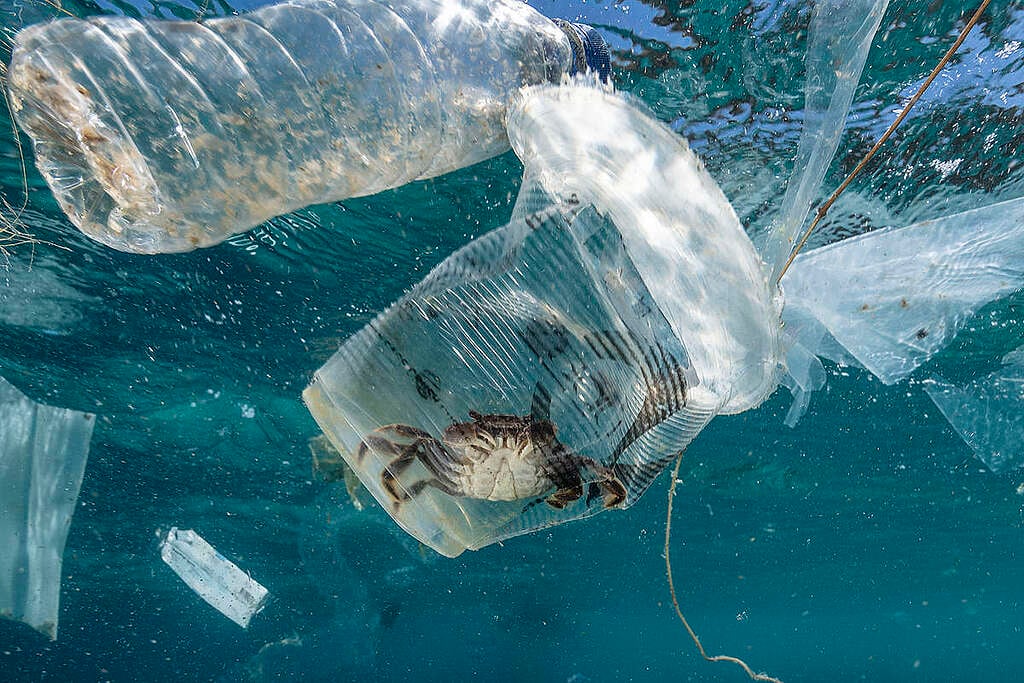
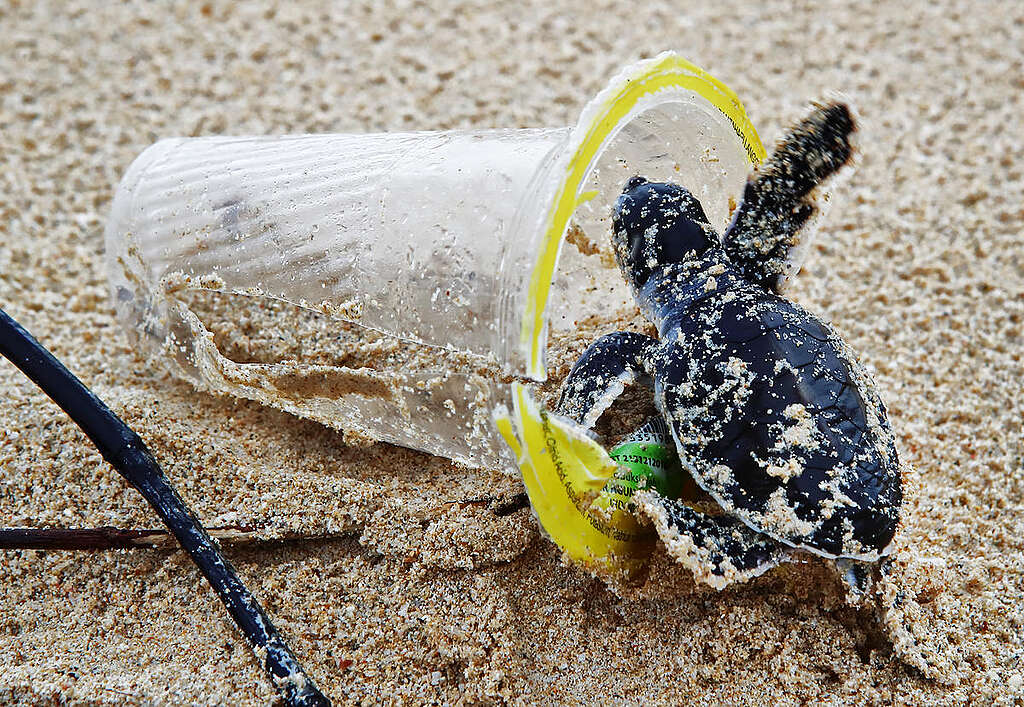
Governments around the world are now negotiating a Global Plastics Treaty – an agreement that could solve the planetary crisis brought by runaway plastic production. Let’s end the age of plastic – sign the petition for a strong Global Plastics Treaty now.
What is the Global Plastics Treaty?
Governments around the world are now negotiating a Global Plastics Treaty – an agreement that could solve the planetary crisis brought by runaway plastic production.
At the United Nations Environmental Assembly in March 2022, governments officially adopted a mandate opening negotiations for a global, legally-binding plastics treaty to address the whole lifecycle of plastics.
The negotiations for the Global Plastics Treaty have started, with the goal of completing the process by the end of 2024. The future treaty has a huge potential to put the world on a path towards a plastic-free future but it will be up to us to make sure that it delivers on its promises.
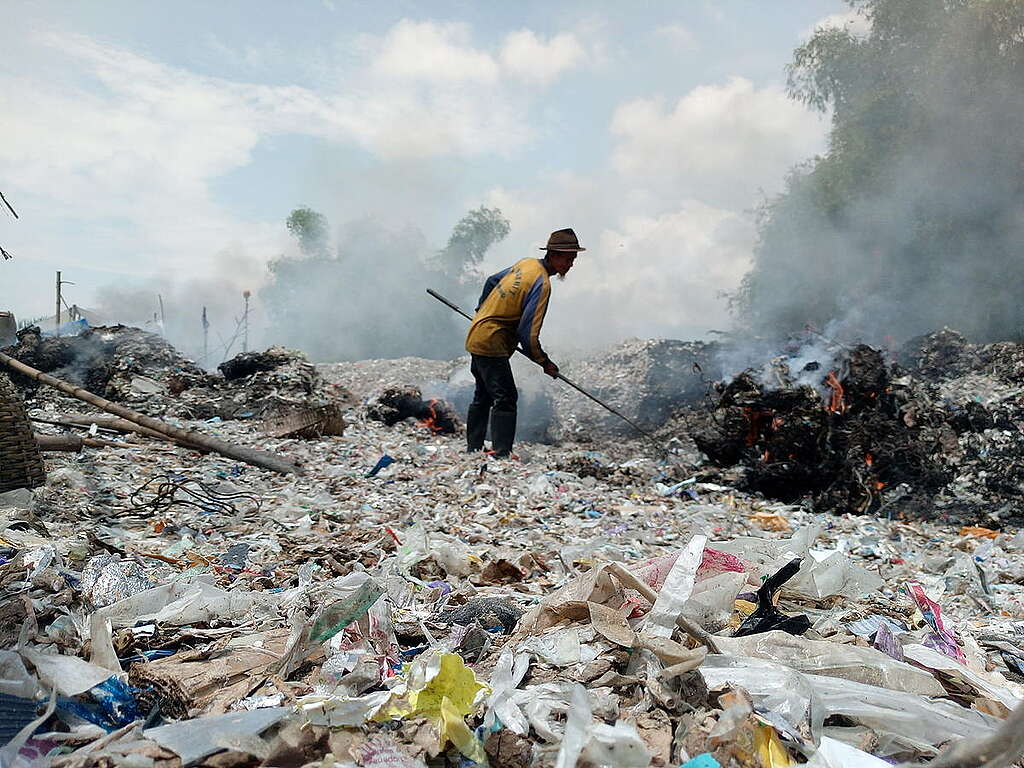
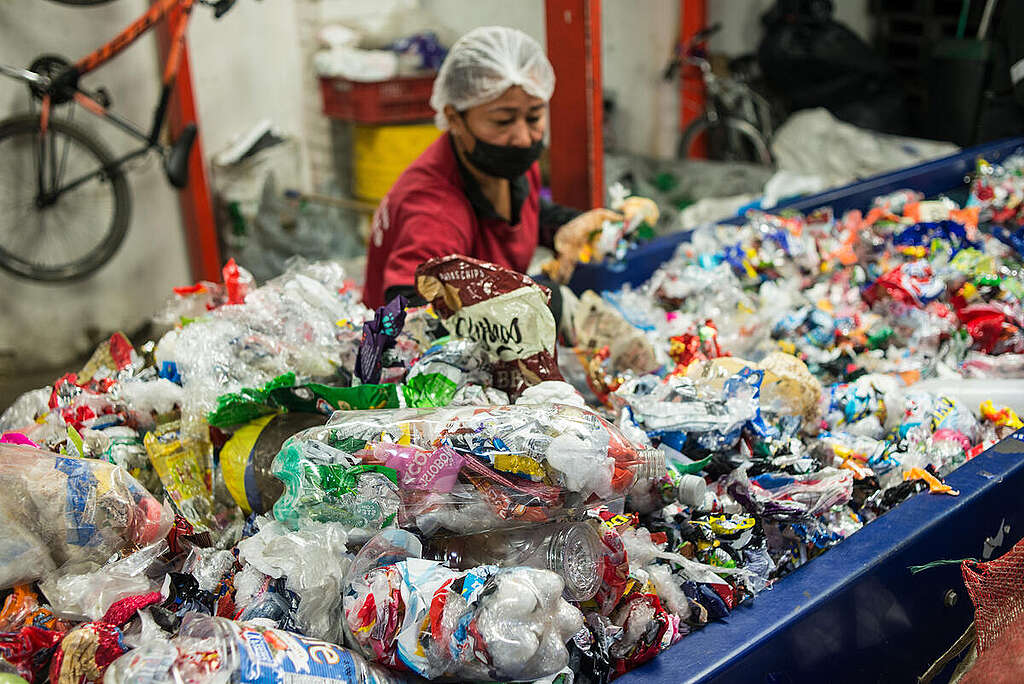
The problem with plastic
We are living in a world that is being destroyed by throwaway plastic. Plastic pollution has flooded our planet, harming people’s health, accelerating social injustice, destroying biodiversity and fueling the climate crisis.
Science is only beginning to understand the long-term effects of plastic on human health, yet microplastics have been found in the air we breathe and the food we eat, and even in our organs and our blood. And communities on the frontlines of plastic production and waste are disproportionately affected by plastic pollution, social injustice, and the climate crisis.
The fact is that 99% of plastic is made from oil and gas — and big oil are making more and more each year. The full lifecycle of plastic harms livelihoods and the climate. Despite all of this, big oil, in league with big brands like Unilever, Nestlé and Coca-Cola, continue to promote false solutions and a throwaway single-use model where ‘convenience’ and corporate profits outweigh the cost to our communities.
Join a global movement for a strong plastics Treaty
We have the opportunity to end the plastic crisis by pushing for a strong and ambitious Global Plastics Treaty that will end runaway plastic production and use. We know that the petrochemical industry, corporations and some governments will try to weaken the ambition of the Global Plastics Treaty, and here is where the battle truly begins.
At the upcoming negotiations, we will show how an unstoppable global movement can achieve an ambitious Global Plastics Treaty that will turn off the plastics tap and finally, end the age of plastic – for our health, our communities, climate, and the planet.
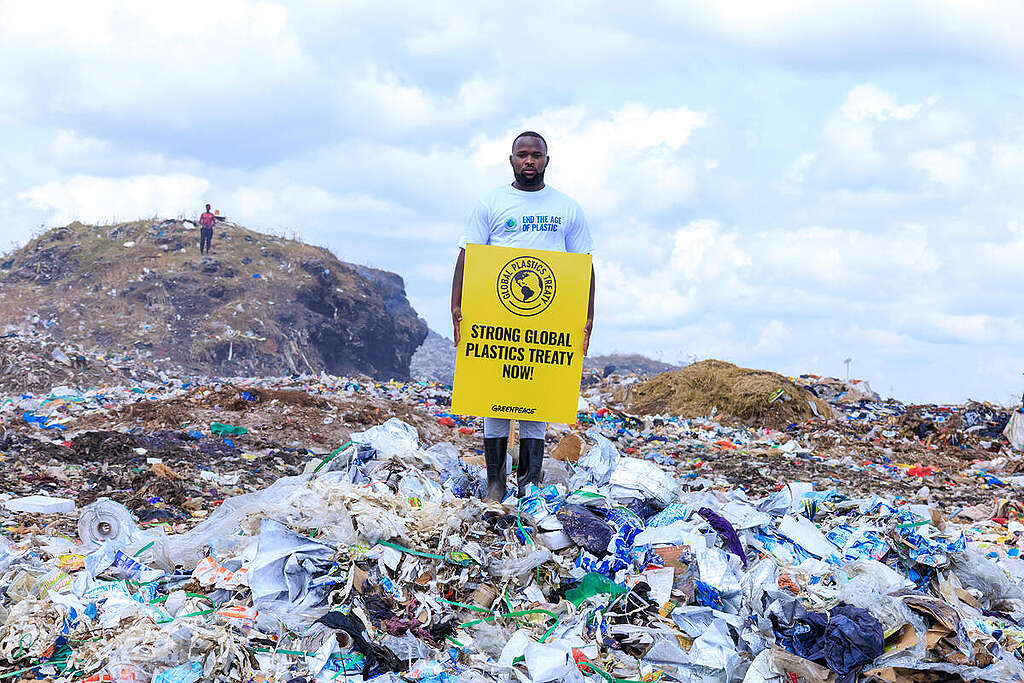
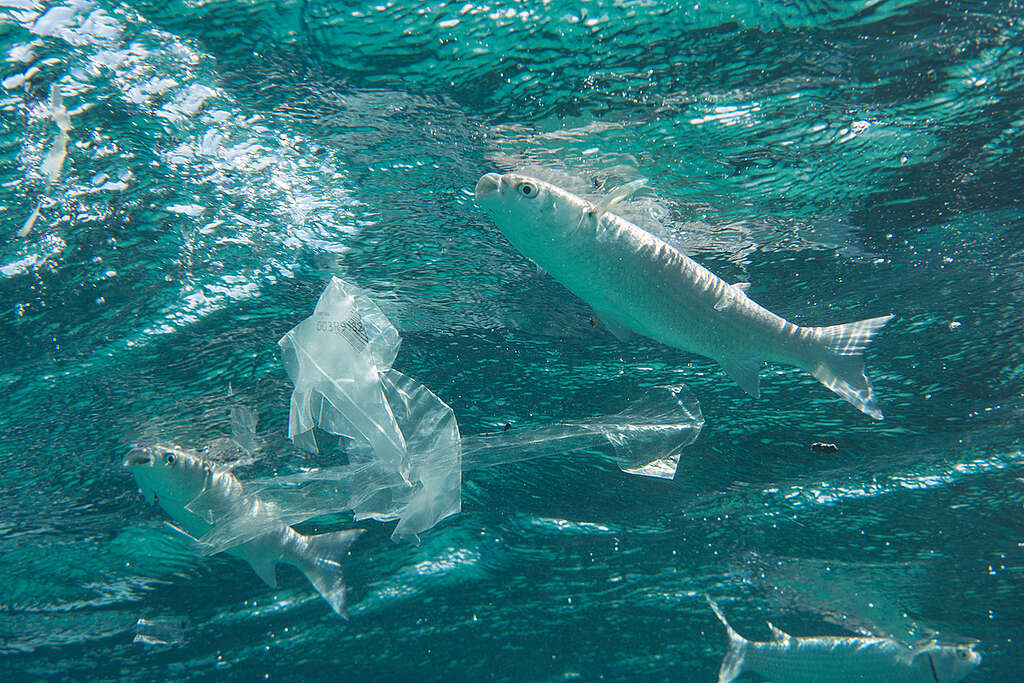
Why do we need a global plastics treaty?
A strong Global Plastics Treaty must match the scale of the plastic pollution crisis. Plastic pollution is one of the most pressing environmental challenges of our time, with the impacts growing more severe every day. Plastic pollutes the environment from the moment it is produced to its disposal. We must negotiate a treaty that tackles plastic at every stage of its lifecycle.
Governments must commit to negotiating a strong plastics treaty that protects our climate by keeping oil and gas in the ground and drastically cutting plastic production. As plastic production is set to triple by 2050, it could account for one-fifth of the world’s remaining carbon budget, which will undermine efforts to control the climate crisis.
We urgently need governments around the world to implement national policies pushing big brands and Big Oil to phase out single-use plastic, support reuse and negotiate a strong Global Plastics Treaty that will cut total plastic production by at least 75% by 2040 to ensure that we are staying below 1.5° C.
It took more than 30 years after the adoption of the UN Framework Convention on Climate Change (UNFCCC, 1992) to start addressing the use of fossil fuels. If the treaty adopted in 2025 does not address plastic production and use, we can expect that addressing production and use will be put aside for a long period of time.
A strong and ambitious plastics treaty will deliver a cleaner, safer planet for us all.
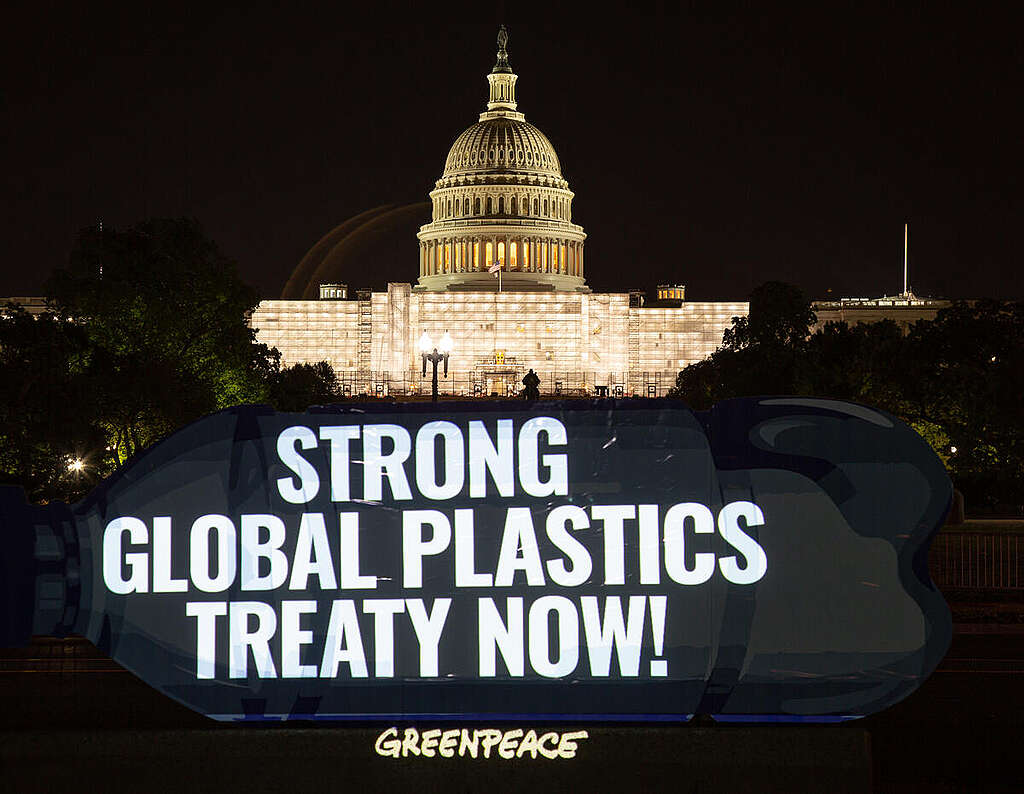
Greenpeace’s demands for the Global Plastics Treaty:
- The Global Plastics Treaty must cut total plastic production by at least 75% by 2040 to ensure that we are staying below 1.5° C for our climate and to protect our health, our rights, our communities and our environment.
- This is a battle for our survival. As expected, the petrochemical industry, corporations and some governments are trying to weaken the treaty’s ambition. If they have their way, plastic production will triple by 2050. We can’t let them.
- As we head into the last round of negotiations, blocker countries continue to oppose meaningful provisions. We need high-ambition countries to show more courage and fight for ambition to reach a treaty that will cut plastic production and end single-use plastic.
- The Bridge to Busan declaration, signed by 34 countries, shows there is support for an agreement that cuts global plastic production to limit global temperature increase below 1.5° C. High-ambition countries can show how ambitious they really are by signing on. We cannot solve the pollution crisis unless we turn off the tap.
- The Global Plastics Treaty must be built upon a foundation of human rights. It must reduce inequalities, end waste colonialism, prioritize human health, center justice, and ensure dignity for all.
- An effective treaty must protect biodiversity, safeguard our climate, and ensure a just transition to a reuse-based economy.
You can help bring an end to plastic pollution
12 million tonnes of plastic waste including straws, drink bottles and food wrappers are poured into our oceans each year! And the corporate giants plan to triple their production of single-use plastics. Your donation today will help power our urgent campaign to protect our planet by pushing for a strong Global Plastics Treaty, and calling on polluting corporations to clean up their act.
Keep informed
Together we are part of a growing, global movement determined to bring about the changes our planet desperately needs. Sign up to receive updates on our campaigns.
